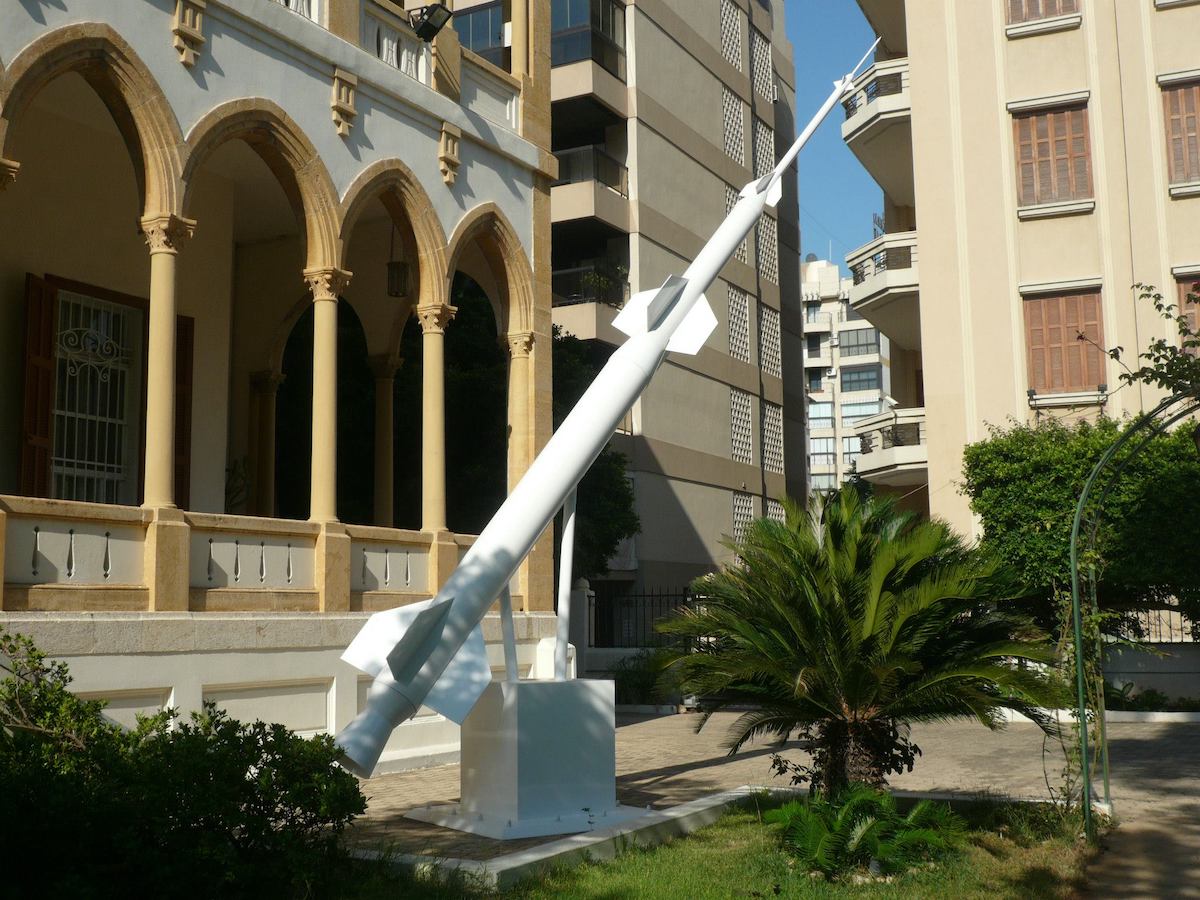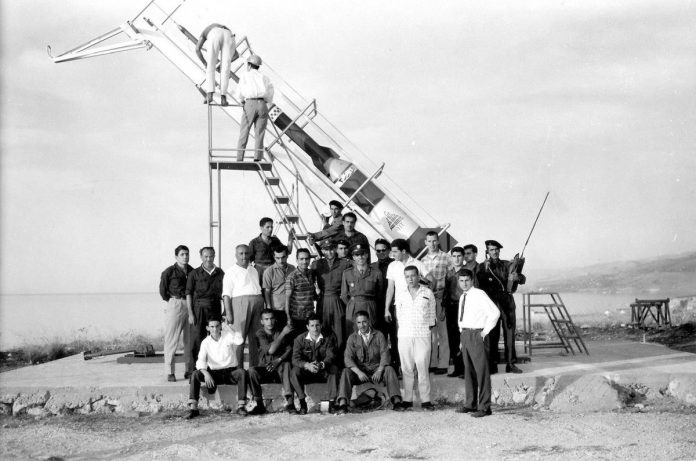DUBAI: Through their 2011 installation, The Paris-based Lebanese duo reflect on their 2011 installation, inspired by the Lebanese Rocket Society from the 1960s.

Hadjithomas: It all started with my sister. She was researching Lebanese history and came across this story about rockets being launched from Lebanon (in the Sixties). It stayed in our minds. A few years later, we saw the stamp of the Cedar IV rocket, which was issued in 1964, and we thought it was really interesting.
Joreige: We wondered why such a positive project disappeared from our history and memory.
H: The Lebanese Rocket Society started in 1960 at Haigazian University. There was a professor — Manoug Manougian — who was really fond of rocketry. His students started making rockets and propellants at the university. The Lebanese Army joined in, but for Manoug and his students it was always an educational project — never a military one.
J: It wasn’t nationalistic either. Most of the people involved weren’t Lebanese — they came from all over the region. Through education, they were building peace.
H: They thought they were contributing to the space race — they were contemporary to the rest of the world, researching this fascination that people had for space. It’s about hope and dreams. So we felt that we should tell this story and find all the people that participated. That was not easy because they were scattered all around the world.
J: We had to think about different strategies of reactivating the past in the present.
H: So we rebuilt a rocket with the help of Sharjah Biennale and we offered it to Haigazian University. Reconstitution is a way of giving matter — reality — to our lost memories. That’s why it was important to redo the rocket exactly as it was. We chose Cedar IV because it was one of the most successful, but we didn’t put the Lebanese flag on it.
J: if you put a flag on it, it would become national and militaristic. By keeping it white, it’s a place of projection, a ghostly presence.
H: Today, it seems like a military missile but it’s not.
J: The UAE probe (which reached Mars on Feb. 9) is called “Hope.” When you are targeting another dimension, something you don’t know, it is always a question of hope.
H: Lebanon is very rich in its people, but we are hostages of people that are corrupt and think only about themselves. We were really happy for the UAE when “Hope” reached Mars, and I think the Lebanese reacted to it because they felt they should also be dreaming — and having the possibility to reconstruct and free themselves from those corrupt people.


